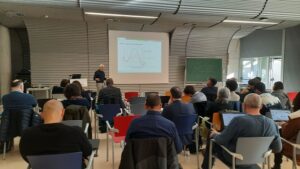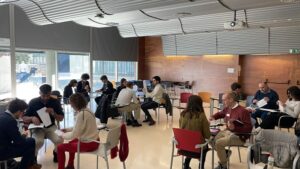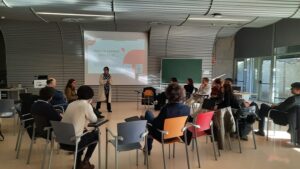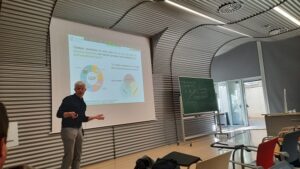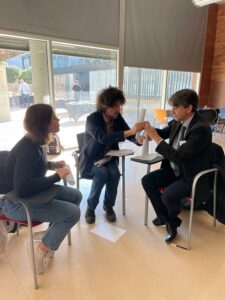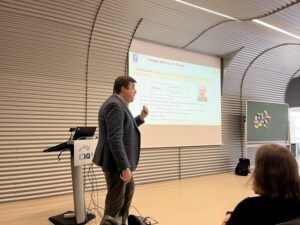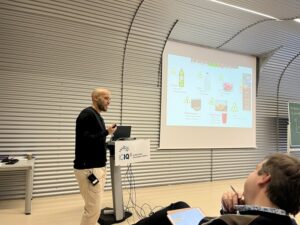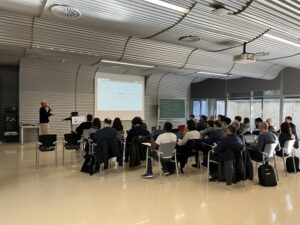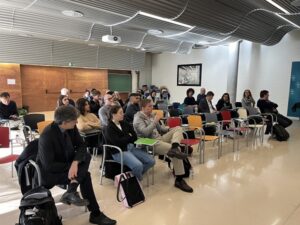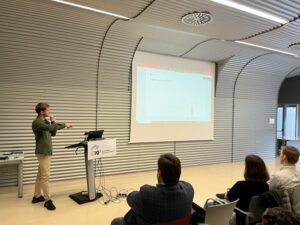The kick-off meeting of the D-CARBONIZE project took place on January 24 and 25 at the facilities of the Institute of Chemical Research of Catalonia (ICIQ-CERCA). The event also served as the first workshop of the project, which focused on the basic research concepts and addressed the design of robust and modular homogeneous/heterogeneous catalytic routes, including continuous flow approaches, for the transformation of biocarbon into functional bio-based monomers under mild temperature/pressure conditions.
The kick-off meeting started with an overview of the project by Prof. Arjan Kleij. The session continued with introductions by the doctoral candidates, and sessions on various topics such as organic chemistry, research integrity, polymer chemistry, catalysis, management of a PhD, dissemination and communication.
The project will train twelve doctoral candidates, who will receive double doctoral degrees from two universities in two different countries at the end of the program. The students will undergo comprehensive training over the course of the next three years, gaining expertise in circular chemistry, catalysis, sustainable polymer synthesis, and a variety of key soft skills for their future careers. The unique aspect of the training involves project execution at two distinct host institutions and industry exposure through secondments.
D-CARBONIZE’s primary objective is to shift the paradigm from a linear to a circular polymer production, mitigating the environmental impact of plastic waste and microplastic accumulation. D-CARBONIZE’s approach involves utilizing biocarbon for the synthesis of valuable starting materials for the chemical and polymer industries. The project aims to provide innovative low-carbon catalysis solutions, leveraging recent advances in catalysis science to overcome limitations in biocarbon valorization. The goal is to transform biocarbon into fine chemicals, pharmaceutical synthons, and biomass/CO₂ based polymers.
The consortium, comprising 15 partners, is led by Prof. Arjan W. Kleij, Group Leader at ICIQ. The different partners bring together expertise from fields ranging from the catalytic generation of biobased monomers to life-cycle analysis (LCA) of the newly prepared polymers and materials. The consortium is formed by six beneficiaries: the Institute of Chemical Research of Catalonia (ICIQ-CERCA), the University of Liege (ULIEGE), Groningen University (RUG), the French National Centre for Scientific Research (CNRS), Heidelberg University (UHEI) and the Technological Institute of Plastics (AIMPLAS), and is further complemented by five companies that will host the student internships: BASF, Total Energies, Corning, Polykey Polymers and Celabor. Finally, the non-governmental organization CO₂ Value Europe supports dissemination and training actions, whereas the associated universities Universitat Rovira i Virgili, the University of Rennes and the Universitat Politècnica de València will provide double PhD titles.
